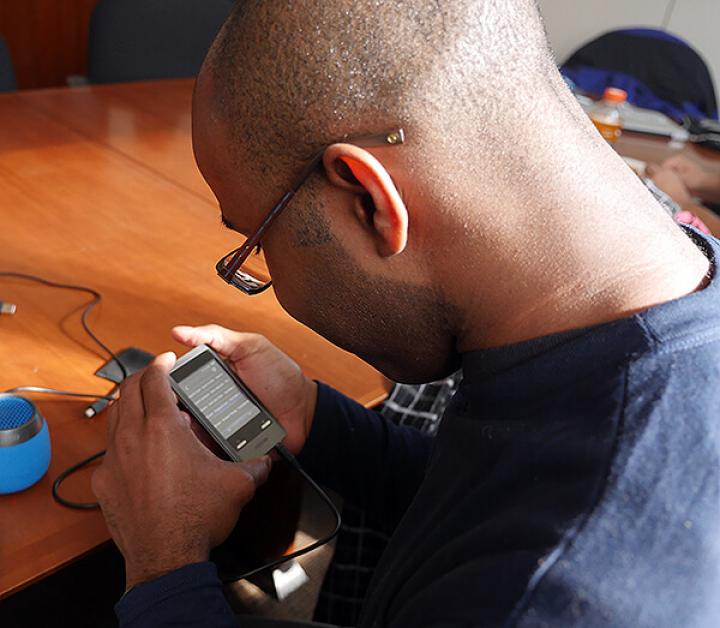 When the latest car or meal delivery service is only an app away, it’s easy to take for granted how much technology streamlines and simplifies our lives. However, for people with intellectual and developmental disabilities (I/DD), even the smallest technological innovations can be revolutionary — but only if those people are given access.
When the latest car or meal delivery service is only an app away, it’s easy to take for granted how much technology streamlines and simplifies our lives. However, for people with intellectual and developmental disabilities (I/DD), even the smallest technological innovations can be revolutionary — but only if those people are given access.
As the pace of technology accelerates, YAI is making sure that people with I/DD aren’t left behind. Launching this year, YAI’s Center for Innovation and Engagement will design, implement, and evaluate technological solutions to everyday challenges faced by people with I/DD.
For instance, what if someone who struggles with public transportation could use an app to get around more easily? Would people with I/DD feel safer if they had a smart home device that would turn off the stove when it wasn’t in use? What benefits might someone experience if in-home medical monitoring technology resulted in fewer nerve-wracking doctor’s visits?
According to Delia Tucker, YAI’s Director of Special Projects and Strategic Initiatives, the Center will answer all these questions and more.
“We want this to be a place where both low- and high-tech solutions can be tested in the field so that we can have case studies on how effective and helpful these solutions are for people with I/DD and their families,” she said.
Over the next two years, the Center will work with residents of two YAI homes and 150 people living in the community to test and implement these solutions. In keeping with YAI’s person-centered approach, every participant in the Center’s pilot program will be someone who has expressed interest in apps, devices, and adaptive technologies that have the potential to make their lives safer, happier, or more independent.
“It’s one thing to say: ‘ok we’re going to outfit a home with all this technology’ but it’s important to consider what that person actually wants in their life,” Tucker said. “A person might need their blood pressure checked regularly, but they might want to learn how to use an app to make friends or to travel independently even more.”
Behind every assessment and implementation will be a Person-Centered Technology Specialist who will meet with the people YAI supports and their families to explore options that best meet everyone’s needs and desires. The Specialist will also help families, DSPs, and people we support feel comfortable using the technology so they can get the most out of it.
Over the course of the pilot program, the Specialist will monitor and document outcomes for each person, assessing what technologies are most effective at improving each person’s quality of life and independence. Ultimately, these findings will be published in a white paper that will be used to help the Center secure additional resources for more widespread implementation among the people with I/DD.
As the Center prepares to launch, YAI has already begun its search for two Person-Centered Technology Specialists. While the title might sound intimidating, Tucker was quick to point out that no one needs a computer science degree to succeed in the role.
“They just need to believe that technology is something that can enhance people’s lives for the better,” she said.
